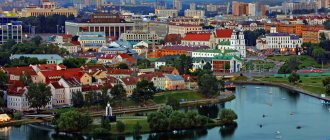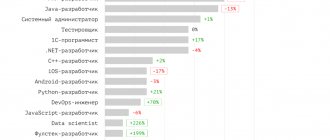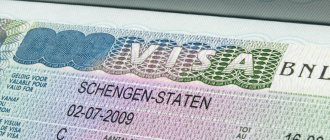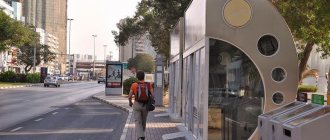Denmark is a prosperous country that has built its own version of “Scandinavian socialism.” A constitutional monarchy with a developed economy and income that provides social protection for the population, political stability and a mild maritime climate - this is an incomplete list of advantages that make Denmark attractive for study, work and life. Moving is not something out of the question. Despite tightening immigration regulations across Europe, Denmark remains open. Its laws are clearly written and enforced, which provides a wide range of immigration options for Russian citizens.
How to move from Russia to Denmark?
The desire to change places is inherent in the human race. The main driving factor is the search for a better life. But not only. Life is diverse, as are the reasons that force you to leave your home. The move can be temporary or permanent, the main thing is that the decision to immigrate is thoughtful and meaningful.
When a person leaves his homeland, he emigrates, becomes an emigrant. To a foreign country he will be an immigrant. The process itself, reaching a certain mass level, is called population migration.
So, a Russian emigrant chooses Denmark as his country of residence, and he faces both a simple and complex task. Simple because Danish immigration law does not pose insurmountable obstacles, and complex for the same reason. There are many applicants, the selection is picky. You need to decide which relocation option is not only better suited, but also offers higher chances.
Video: Copenhagen tour
Investments and business
Denmark is ready to give residence permits to those who invest more than 50,000 euros in its economy. At first glance, the amount is small, available to those who can sell an apartment or take out a bank loan secured by property.
However, actual costs will exceed the required investment. A residence permit cannot be bought, a residence permit cannot be sold. The future immigrant commits to opening a business that will create jobs and generate profits. Rarely does a foreigner manage to complete the task on his own. There will be costs for intermediaries and lawyers. An additional financial burden will be the opening of an account, registration of an enterprise, and a mandatory insurance deposit in the bank.
As a way out, the investor is offered to purchase a ready-made business or open a joint business with an entrepreneur legally residing in Denmark. Dozens of legal entities are registered under business immigration programs and are waiting for a Russian buyer. Assistance is provided by the Russian trade mission in Denmark.
Those who overcome difficulties and become a Danish entrepreneur undergo another test - an interview in English or Danish at the Directorate for Foreigners. Successful completion gives you a one-year residence permit, which must be renewed for three years in order to finally receive permanent residence, and with it all the rights of a Danish citizen.
Investments for the sake of a residence permit are not just for wealthy migrants; it is not enough to have money; you need knowledge and the ability to manage a business. Many applicants went broke in this field, not achieving what they wanted in the form of Danish permanent residence.
Employment
Obtaining a residence permit through work in Denmark is an ideal option for those who are in demand on the labor market. The interested employer will receive permission to hire a foreign specialist, enter into a contract with him and provide visa support and accompaniment for expedited completion of formalities.
Subspecialists in medicine, science and IT technologies are in demand in Denmark. The modern labor market is dynamic and subject to changes, including seasonal ones. You can track requests and vacancies on information resources.
A good practice is to send out resumes and contact recruiting agencies. Whoever knocks, the door is opened. True, great patience and endurance are required. A good result is considered to be 5 positive responses with an offer of an interview by phone or Skype for 100 submitted questionnaires.
Education
Education is not as wasteful a way to immigrate as business investment. There are many educational institutions in Denmark that accept foreign students. The educational process is organized at the level of the best European universities. You can apply for grants or a loan for a future diploma.
However, you will have to really study and show decent results so as not to be expelled. It is impossible to complete a paid course in order to automatically receive a residence permit as an appendix to your diploma upon completion. In addition, you will have to bear additional costs for food, accommodation, transportation, social insurance, etc.

The University of Copenhagen is one of the oldest in Europe
Immigration through education is recommended for young people with a talent for languages and good academic and sports performance. Upon graduation, you must demonstrate proficiency in the Danish language. But the graduate has a high chance of finding a job and gaining a foothold in Denmark. Many students undergo internships in Danish companies and start working for them before graduating from university.
Family reunification
The practice of reuniting close relatives exists in all countries, Denmark is no exception. If one of the family members is a citizen of Denmark or legally resides in it, then his relatives can apply for a residence permit in order to move in and be together.
Family and kinship relationships are multifaceted, therefore, depending on the situation, each issue is resolved individually through the submission of applications, interviews, provision of additional documents to the main visa package, etc.
Marriage
Danes can marry foreigners, and their spouses receive the right to a residence permit with subsequent registration of citizenship.
The main problem is the justified suspicion of the authorities. They need to make sure that the marriage is not a sham. Newlyweds will have to be patient and calmly go through all the checks, secret and overt, in order to dispel doubts and confirm their intention to start a family.
Nothing strengthens relationships like immigration enforcement.
Refugee programs
Denmark is a party to international conventions on the protection of refugee rights. It has a program for the reception and adaptation of internally displaced persons. In addition, some refugees arrive under quotas established by the EU leadership for EU countries.
A foreigner who applies at the border control with a request for refugee status will find understanding. He will be sent to a camp where he will be provided with shelter, food and a small allowance. It will be dealt with by special services and social activists. The refugee application will be processed by the Danish authorities for several months.
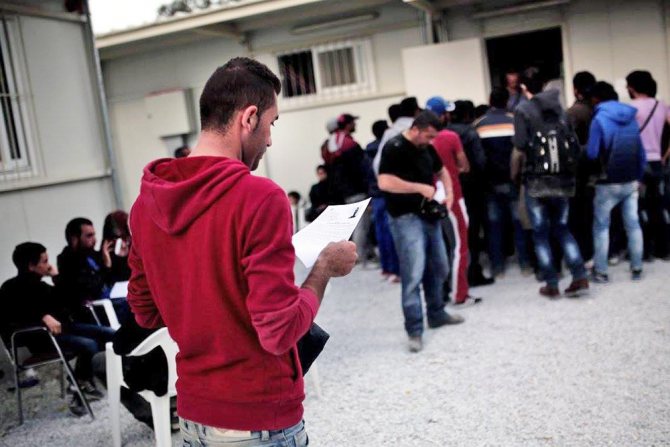
Denmark has two reception centers for refugees, both in Copenhagen
If the reasons are convincing and do not contradict Danish laws, the applicant will receive a residence permit and benefits. He will be transferred to the care of other services for subsequent socialization. Otherwise, the failed applicant will join those who are deported to their homeland or to the country from which they came.
You can apply for refugee at the consulate at your place of residence. Success depends on whether the applicant can convince consular officers that he is at risk because of his beliefs or social activities. It is necessary to provide convincing, documented facts of persecution and threats to him and his family members so that the need for humanitarian protection is obvious.
Having lived in Denmark for 5 years as a refugee, you can apply for a residence permit, and after 3 years change it to permanent residence. After 7 years of permanent residence, a foreigner receives the right to citizenship. The path is long, but many have passed successfully.
Denmark Green Card
The name is similar to the US green card, but nothing similar. The Americans hold a lottery, while the Danes conduct a targeted search for migrants with a high level of education and in-demand specialties that society needs. Canadians, Australians, and New Zealanders have similar programs.
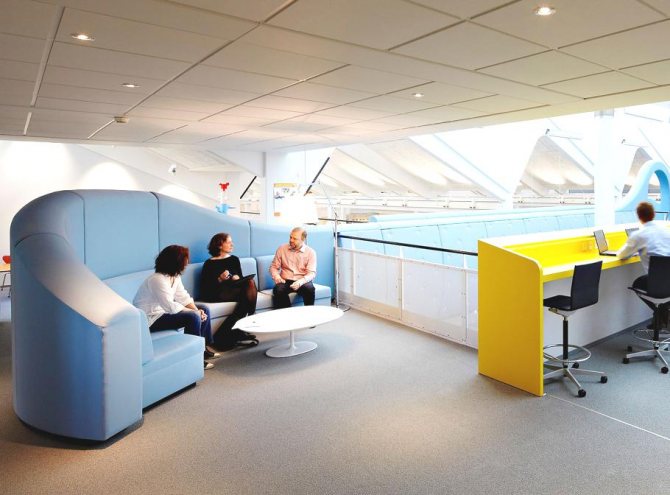
Green Card - a program for qualified specialists for the best vacancies in Denmark
In fact, this is a special case of immigration through employment, but not when the employer has found an employee and ensures his relocation. Here, according to developed and verified criteria, a selection is made from the mass of applicants.
It is based on a point system, for each criterion a certain amount is awarded:
- for education - from 30 for a bachelor, up to 50 for a master and 80 for a candidate of sciences;
- for the demand for a specialty - up to 30 points;
- for graduating from a prestigious university included in the Top 100 in the world - from 10 to 30;
- for knowledge of languages - Scandinavian - from 5 to 40, German and English - from 20 to 40 (based on test results);
- ability to adapt to Europe (experience and length of residence in the EU) - 5–10 points.
You must score at least 100 points for your application to be considered. An additional requirement is the availability of funds for an annual residence in Denmark. A single person will need 128,300 crowns (about 17,220 euros), for a family of two adults with children - 299,000 crowns (40,100 euros).
A green card as a form of residence permit is issued for a year. If you want to extend it, you must submit a request 3 months before the expiration date. Those entering Denmark with a green card are subject to certain requirements. The State Labor Agency will only provide information support and monitor the income of a foreigner. He needs to decide on his own issues of living and working. At the end of the year, he must show legal earnings totaling at least 50,000 kroons (6,700 euros), otherwise he will be disqualified and even excluded from the Green Card program.
After surviving for 3 years in such harsh conditions, you can obtain permanent residence, increasing your status and social security.
Why can they refuse a residence permit?
Firstly, it could be simple mistakes with papers. No one has abolished bureaucracy. Therefore, when completing documents, carefully check each item.
Secondly, the state requires immigrants to have a certain amount of money to live on its territory. If you don’t have this money and you can’t provide a bank statement showing you have the required amount, alas, you will be denied.
Thirdly, you do not need to violate the laws of the state to which you want to move. Keep track of renewal dates for documents, residence permits, etc. Everyone loves law-abiding citizens.
As mentioned above, entering into a fictitious marriage can also become a reason for refusal.
What are the Russians claiming?
All methods of legally moving to Denmark are available to Russians. The Russian diaspora includes representatives of all categories of immigrants.
Only programs for the reception of refugees, due to complex political processes in Europe and the world, have lost their former attractiveness. Applicants from Russia find it very difficult to prove their rights to refugee status.
Everything else - business, employment, marriage, family reunification, study, green card - is still actively used to leave Russia and take root in Denmark. They choose this country to live, work, and raise children in a calm, prosperous society with a low crime rate and high consumption standards. Developed, independent Denmark, being a member of the EU, has retained its currency and independence from the EU leadership in resolving many issues.
Video: Denmark. What has emigration changed in me?
Pros and cons of a Danish residence permit
Russians, Ukrainians and Belarusians who have received a residence permit in Denmark note the positive and negative aspects of the move. Among the advantages are:
- high quality of life;
- no delays when registering a business;
- absence of bureaucracy and corruption;
- a calm environment without criminal offenses;
- introduction of new technologies and various innovations;
- the friendly attitude of the Danes towards law-abiding and hardworking foreigners;
- communication in English.
Among the negative aspects are high taxes and significant costs for food, utilities, transportation and rental housing.
Moving to Denmark is not a pipe dream. Migration legislation is clearly defined and enforced, and there are many available ways to obtain a residence permit in Denmark. The main thing is to think about how to do everything correctly, strictly comply with the conditions and integrate into Danish society.
the cost of living
The average gross salary in Denmark is 42,500 crowns per month (approximately 520 thousand rubles). A little less than half of it immediately goes to taxes - the basic tax is 38%, the labor market payment is 8%, pension contributions are 4% and the social contribution, which for me is equal to about a hundred crowns per month. At the same time, I receive about one and a half thousand crowns back as compensation for travel to work and about five thousand crowns for supporting my wife, who is not working yet. If you overpay (or underpay) part of the taxes, they will be returned/deducted in April of the next year. This happened to me with my salary - due to the fact that I was not registered with the tax office for the first few months, the maximum tax of 65% was written off from me, so by April I suddenly lost a very decent compensation. As a result, after paying taxes, I have about 70% left in my hands, which is good news.
Main expense items:
- Housing - 7,500 crowns per month (90 thousand rubles), taking into account the cost of water and heating.
- Utilities - my employer pays for my internet, so I only pay for electricity - 1,300 crowns every three months (1,600 rubles).
- Travel - an unlimited monthly travel pass from home to work cost me 660 crowns (8 thousand rubles).
- Gym subscription - 230 CZK per month (2800 rubles).
- Contribution to the unemployment fund is 500 crowns per month (6 thousand rubles). If I am a member of this fund for at least a year, then after dismissal I will be paid about 20 thousand crowns (250 thousand rubles) per month until I find a job (or until a year has passed from the date of dismissal).
- Additional medical insurance - one thousand crowns every three months (12 thousand rubles). It is not mandatory, but it covers all paid medical services, including dentistry, either 50% or 100%, so if you plan to spend a lot of money on treatment, insurance can be very beneficial.
- Products are on average one and a half to two times more expensive than in Novosibirsk. The prices that stand out are the prices for eggs (23 crowns - 300 rubles) and bread with bananas (20 crowns - 250 rubles) - almost three times more expensive.
There are also very expensive taxis here, and slightly unpleasant prices for dental treatment. So, for example, they charged me 4,500 crowns (55 thousand rubles) for removal, taking into account diagnostics and anesthesia. I used to pay 46 kroons (600 rubles) for a one-way trip to work, but then I realized that I could take a monthly pass and travel much cheaper. Cars are expensive, and taxes on them are too (up to twice the cost of the car itself). But at the same time, healthcare is almost completely free, education is also free, and the mortgage rate is also very low, somewhere around zero to one percent.
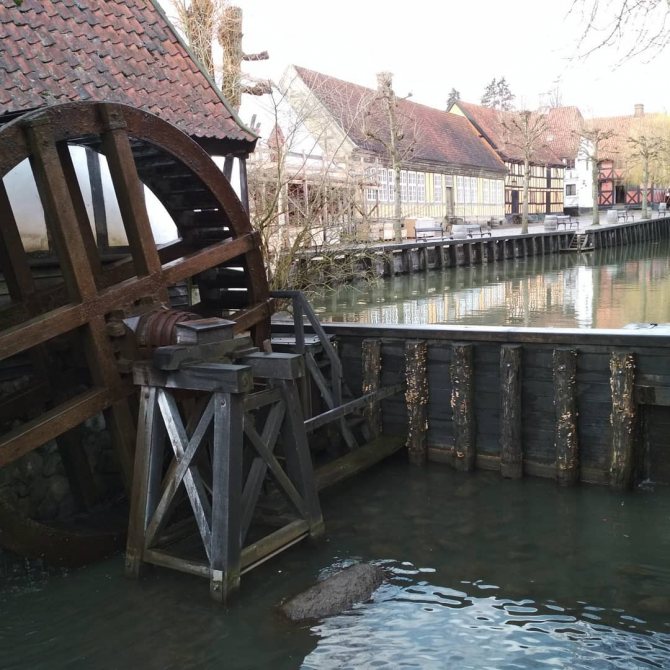
The old water wheel at the Den Gamle By museum.



